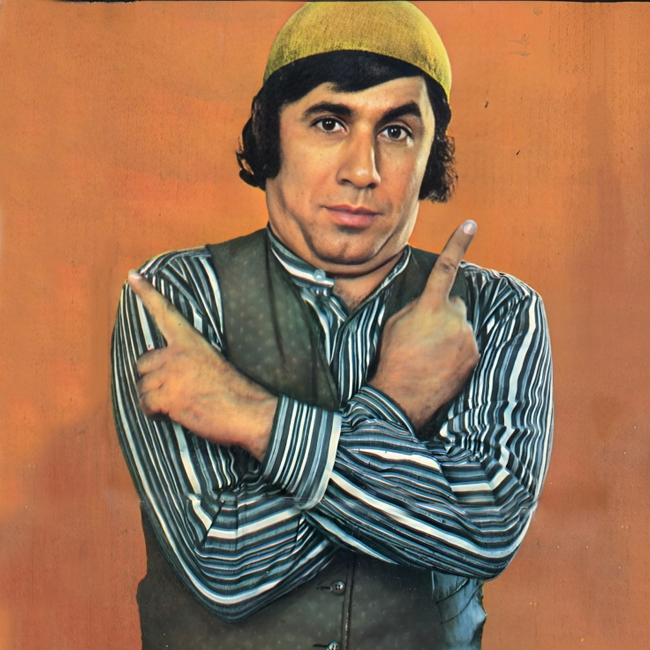

Parviz Sayyad is an actor, director, translator, and screenwriter, and one of the earliest television stars in Iran. Since his youth, he was engaged in literary and artistic activities, including writing and publishing poems, stories, and plays, and then he began his film career in 1959 by writing the script for the movie Mīmīram Barāy-i pūl (I Die for Money), directed by Mahdī Ra’īsfīrūz. In the 1960s, he began working as a writer and actor for Iran’s newly formed National Television. Like many others from theater who joined National Television, Sayyad started producing television shows until 1970.
His feature film debut was in Hasan Kachal (Hassan, the Bald, 1970) by Ali Hatami. He rose to fame after appearing in the Iranian TV series Ukhtāpūs (Octopus, 1975) as a sneaky and soft-spoken board member. However, he is best known for his role Samad in the television series Sarkār Ustuvār (Sergeant 1967), as a naive but street-smart country boy character and a prominent comedic icon in Iran during the 1970s. With the help of filmmaker ‛Ali ‛Abbāsī, Sayyad directed his first film, Samad va Ghālīchah-yi Hazrat-i Sulaymān (Samad and the King Solomon’s Carpet, 1969), while also playing the same role. Sayyad played other noteworthy roles, such as Asdullāh Mīrzā in the TV series Dā’ī-jān Nāpil’un (My Uncle Napoleon, 1976). Sayyad’s comedies often contained social commentary delivered lightly and humorously.
Because of his intellectual concerns, he also made independent films. His 1977 drama Bun’bast (Dead End), an adaptation of a story by Chekhov, was acclaimed at the 10th Moscow International Film Festival.
Following the Iranian Revolution, Sayyad immigrated to the United States, where he continued to work as an actor, writer, director and producer. He received a PhD from the City University of New York (CUNY). He directed and starred in Firistādah (The Mission 1983), which made its way into the 33rd Berlin International Film Festival and won the Jury Grand Prize award at the Locarno Film Festival. Sayyad was one of the founders of the Association of Leading Cinematographers and, as a result of his performances, has become a well-known actor and director in the history of Iranian cinema.
